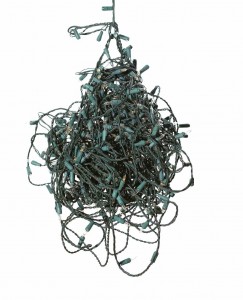
“A constant struggle against being annoyed all the time may be a phenomenon limited to New Yorkers,” says Joe Palca ’74. The relocated Upper West Sider knows of what he speaks when it comes to irritable straphangers, but he has also established himself as one of the world’s experts on annoyance with Annoying: The Science of What Bugs Us, a book that’s about just what you think it’s about, and which the NPR science correspondent co-wrote with NPR multimedia editor Flora Lichtman.
Palca earned his Ph.D. in psychology at UC Santa Cruz after graduating from Pomona, where he got his start on radio at KSPC. “We just brought our record collections to the station and played what we would have listened to anyway,” he says of his radio days in Claremont.
These days, Palca spends his time in Washington, D.C., although he also recently logged six months back in Southern California as the science writer-in-residence at the Huntington Library. The catalytic annoyance that inspired this study of all things annoying arrived—and it’s tempting to write “of course”—on the New York City subway. Palca spoke to PCM about how he came to study annoyingness, the reasons why you—and everyone else, everywhere—hate the sound of fingernails on a blackboard, and his as-yet-unfulfilled quest for the definitive annoying experience.
As a sentient human living in a major American city, you are more or less guaranteed multiple annoyance triggers in a given day. Can you put your finger on a moment when that workaday annoyance started to seem like something worth writing a book about?
The finger-putting moment for the book actually came from my co-author, Flora Lichtman. She was riding on the subway from Brooklyn to Manhattan, and the guy sitting next to her on the train was clipping his nails. She found herself becoming increasingly annoyed as the clipping seemed to continue way longer than necessary for someone with only 10 digits. She asked me if I thought exploring why this experience annoyed her so could make a book, and I said, “Sure.” I pitched her idea to an editor at Wiley, he loved it, and though we ultimately had interest from several publishers, Wiley won a bidding war.
In Annoying, you identify an experience’s unpleasantness as a fundamental aspect of its annoyingness, which seems hard to argue with. There’s no accounting for taste on the question of pleasantness-versus-unpleasantness, but did you find anything that annoyed more or less everyone, everywhere?
I suppose the quintessential universal annoyance is fingernails on a blackboard, although with the disappearance of blackboards that may change. Rubbing Styrofoam boxes together captures some of the same awfulness. Skunk smell also seems to be a nearly universal annoyance. Why? Hard to say for sure. Fingernails on a blackboard has an acoustic signature similar to a human scream or a primate’s warning call. Skunk spray’s smell comes from sulfur, and high sulfur environments tend to be low oxygen environments. Perhaps these things evoke a primal avoidance reaction, which we have modified over evolutionary time to be merely annoying.
No one really likes overhearing half of someone else’s phone conversation, but I was surprised to learn that our brains are actually wired to listen to and attempt to interpret that sort of “halfalogue.” To what extent is being annoyed attributable to unhelpful reflexes like that? And can we do anything to change that?
Annoyances can seem reflexive, but in nearly all cases they are learned. Does that mean we can train ourselves not to be annoyed? Not really. We can try to become calmer people, of course, but once something’s annoying it usually stays annoying. But you can, with practice, learn not to respond. You can’t prevent your leg from twitching when a doctor taps your patellar tendon with a hammer. If you can, you have problems that go way beyond annoyance.
You pin down three main factors that go into making experiences annoying—they’re unpleasant, unpredictable and of an uncertain duration. Excluding three-for-three flukes like getting stuck in traffic with a screaming baby and a car radio inexplicably stuck on a Black Eyed Peas marathon, what would be your ultimate annoying experience?
For me, being stuck in a noisy, hot waiting room for a flight or train that is delayed with no explanation is close to my ultimate annoyance. The absence of information is what pushes me from everyday annoyance into the top echelon. I have to fudge on whether it’s the ultimate annoyance, though. I feel life is full of discoveries, and I hope I have yet to discover my ultimate annoyance.
—Interview by David Roth ’00
